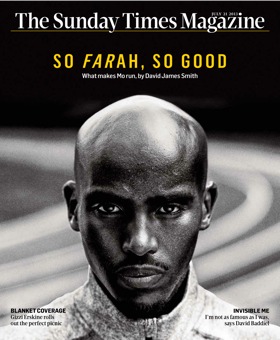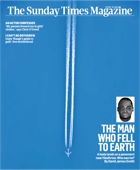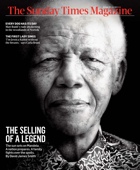The critics on Young Mandela
The Mail On Sunday – Martin Meredith
The narrative of Nelson Mandela s early life as a political activist confronting apartheid in South Africa is about failure as much as success. As a young man, he was prone to bouts of rash and stubborn behaviour. Among his circle of friends and colleagues in Johannesburg, he soon gained a reputation as a hothead . His close friend Oliver Tambo described him at the time as passionate, emotional, sensitive, quickly stung to bitterness and retaliation by insult and patronage .
No one doubted his energy and enthusiasm. His physical presence was striking: he was 6ft2in tall, broad-shouldered, with dark, piercing eyes, a radiant smile and an engaging laugh. But, by his own admission, he was regarded as a gadfly, a lightweight thinker too impatient for action. Indeed, Mandela’s liking for action was to have perilous consequences.
His background was unusually privileged. A descendant of the Thembu royal family, he was adopted, after his father s death, as a ward of the acting regent who paid for his education at mission schools and at Fort Hare university. His aim, above all, was to obtain a degree, which would have assured him of a future of prosperity and prestige. But just when it was within reach, Mandela fell foul of the university authorities in a trivial dispute over student food and then abandoned Fort Hare altogether to escape an arranged marriage, laying a trail of lies and deceit in an escapade that left him penniless.
Mandela’s luck was to find employment with a white Johannesburg lawyer and to fall in love with a nurse whose earnings helped him to further his law studies and start a family.
But he was soon drawn into the ardous world of black politics, hazjoin-ing a group of young militants who sought to turn the moribund African National Congress into an effective protest movement. For a period ing the Fifties, the ANC succeeded in gaining mass support but it was eventually crippled by government repression and internal feuds.
Mandela s career as a lawyer, too, briefly flourished. He was able to indulge his taste for fine clothes and to purchase a large Oldsmobile; and he cut a dashing figure across Johannesburg society, equally at ease at multi-racial parties as in the back streets of black townships.
His troubles, however, began to multiply. His marriage failed and he embarked on various affairs before meeting his second wife, Winnie. Along with other political activists, he faced charges of treason that dogged him for years. His law tice collapsed, pracleaving him without an income. Meanwhile, the juggernaut of apartheid rolled on. Frustrated by government repression, Mandela took the fateful decision to turn to armed struggle. He was influenced by members of the underground Communist Party who believed that armed action would precipitate a mass uprising.
It was a forlorn enterprise from the start, conducted in an ameturish fashion, and it enabled the apartheid government to crush the African nationalist movement in the name of law and order. Mandela himself, careless of his own rity, secusurvived for no more than five weeks before his arrest.
In Young Mandela, David James Smith follows Mandela s career up to the point where he was sentenced to life imprisonment in 1964. It is a well-trodden path. Smith has managed to find some additional details from archive material and from recent interviews. But he often loses sight of the larger picture of the apartheid menace Mandela was fighting and the ways in which his political views changed over time.
The clues to Mandela s deep conviction about the need for a multi-racial society lie in this period: he had friendships with Afrikaners at a time when they were generally regarded as the enemy.
The book s main drawback, however, is that it ends halfway through Mandela s life. There is no glimpse of how Mandela turned the failures and misfortunes of his early life into the triumph of democracy in 1994.
NEWS AND EVENTS
Latest Articles
On the cover of The Sunday Times Magazine…
Latest News
The Sleep Of Reason – The James Bulger Case by David James Smith:
Faber Finds edition with new preface, available September 15th, 2011.Young Mandela the movie – in development.
From The Guardian
Read the articleIn the Diary column of The Independent, April 13th, 2011
More on my previously unsubstantiated claim that the writer-director Peter Kosminsky, creator of The Promise, is working on a drama about Nelson Mandela. I’ve now learnt that the project is a feature film, in development with Film 4, about the young Mandela. Kosminsky is currently at work on the script and, given the complaints about the anti-Jewish bias of The Promise, it is unlikely to be a standard bland portrait of the former South African president.
Latest Review
Nelson Mandela was circumcised as a 16-year-old boy alongside a flowing river in the Eastern Cape. The ceremony was similar to those of other Bantu peoples. An elder moved through the line making ring-like cuts, and foreskins fell away. The boys could not so much as blink; it was a rite of passage that took you beyond pain. read full review
See David James Smith…
Jon Venables: What Went Wrong
BBC 1, 10.35
Thursday, April 21st, 2011





